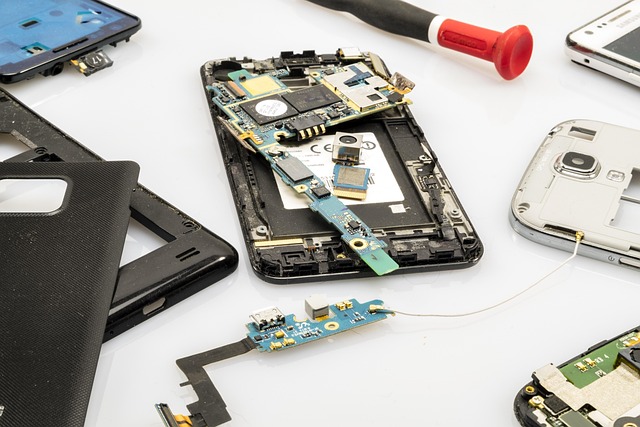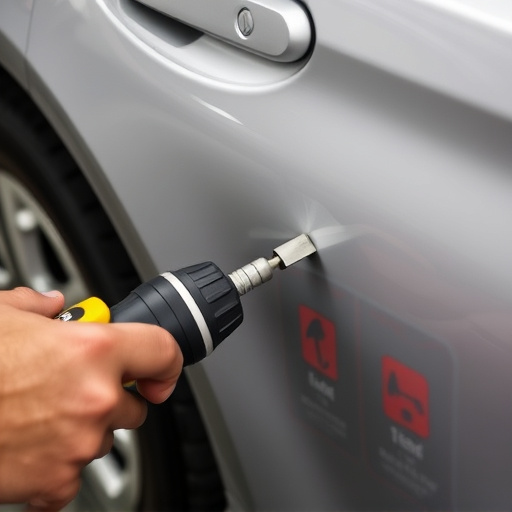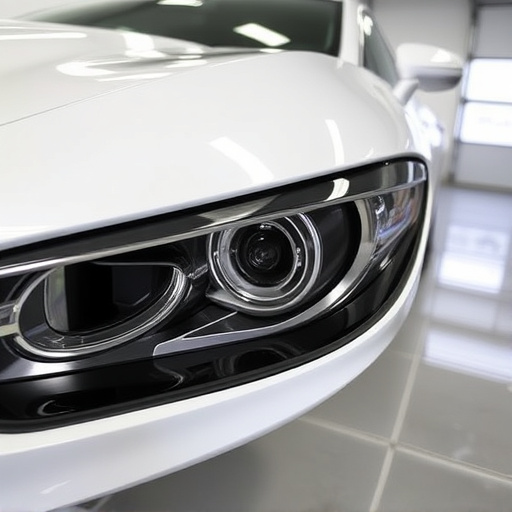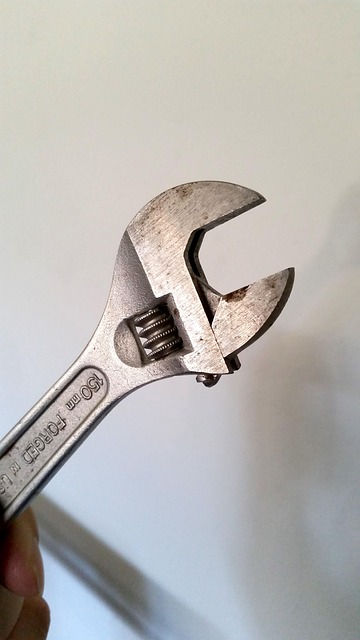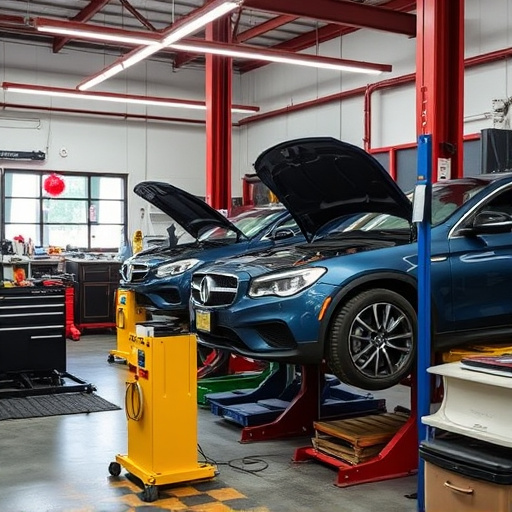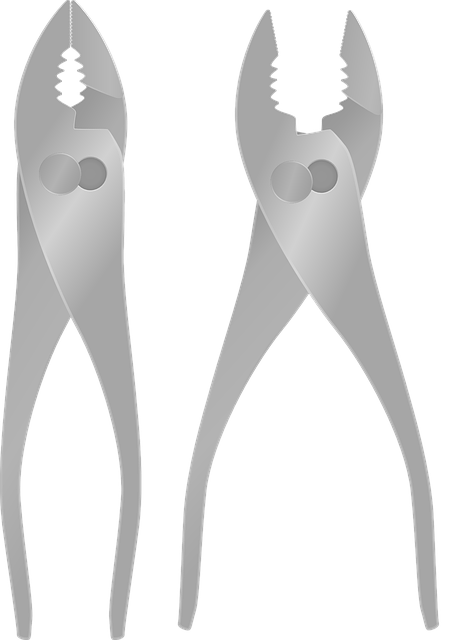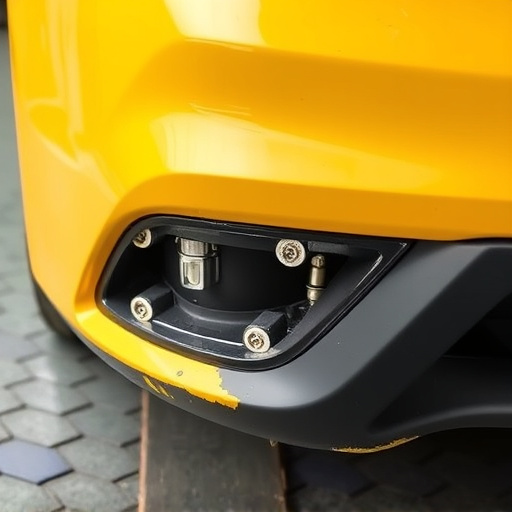Electronic measuring equipment is a critical component across various industries, offering precise measurements of physical attributes like length, weight, temperature, and pressure via sensors, circuits, and digital displays. In automotive applications, it's invaluable for tasks such as auto glass repair and detailing, while also aiding in bodywork repairs to restore vehicles to optimal condition. The global market is diverse, catering to manufacturing, construction, healthcare, and more, with tools ranging from simple calipers to advanced 3D scanners. Choosing and maintaining high-quality equipment is crucial for achieving precision, efficiency, and quality, as seen in auto body repair where well-maintained tools can reduce rework significantly.
“Unveiling the intricacies of electronic measuring equipment, this comprehensive guide is your ultimate resource. From understanding the basics to exploring diverse tools and their applications, we demystify this crucial technology. Learn how various types, including multimeters, oscilloscopes, and voltage testers, cater to specific needs in industries ranging from electronics to engineering. Discover best practices for selection and maintenance to ensure accurate measurements, making your projects seamless and reliable.”
- Understanding Electronic Measuring Equipment: A Comprehensive Overview
- Types of Electronic Measuring Tools and Their Applications
- Selecting and Maintaining Your Electronics for Accurate Measurements
Understanding Electronic Measuring Equipment: A Comprehensive Overview

Electronic measuring equipment plays a pivotal role in various industries, from precision manufacturing to automotive care. Understanding its capabilities and limitations is essential for professionals across different fields. This comprehensive overview aims to demystify these tools, providing insights into their functioning, applications, and benefits.
These devices leverage advanced technology, often incorporating sensors, circuits, and digital displays, to accurately measure physical quantities such as length, weight, temperature, and pressure. In the context of car maintenance, they are invaluable for tasks like auto glass repair, where precise measurements ensure perfect fits, or auto detailing, where precision is key to achieving flawless finishes. Even in car bodywork repairs, these tools help in accurate assessments and repairs, ensuring vehicles return to their optimal condition.
Types of Electronic Measuring Tools and Their Applications

The world of electronic measuring equipment offers a wide array of tools designed to accurately assess and quantify various physical attributes, making it indispensable in diverse industries. These devices range from simple yet precise calipers and micrometers for basic measurements, to advanced systems like 3D scanners and laser distances meters for complex data capture. In automotive sectors, including collision repair shops and body shop services, electronic measuring equipment plays a crucial role. Technicians use these tools for precise assessments during bumper repair, alignment, and other intricate adjustments, ensuring both safety and aesthetic excellence.
Beyond the automotive realm, applications span construction, manufacturing, and even medical fields. For instance, digital multimeters measure voltage, current, and resistance, while temperature sensors and data loggers provide thermal readings. In today’s fast-paced environment, accurate and efficient electronic measuring equipment is not just a convenience; it’s a necessity for achieving precision in various body shop services, from minor repairs like fender dent removal to major overhauls.
Selecting and Maintaining Your Electronics for Accurate Measurements

Selecting and maintaining your electronic measuring equipment is paramount for accurate measurements in any industry, be it manufacturing, construction, or even automotive fields like auto body repair and automotive collision repair. When choosing an electronic measuring tool, consider factors such as precision, accuracy, ease of use, and compatibility with existing systems. Calibration and regular maintenance are also crucial to ensure these devices provide reliable and consistent results.
Proper care extends the lifespan of your electronic measuring equipment and maintains its accuracy over time. This includes storing them in controlled environments away from extreme temperatures or humidity, regularly cleaning the sensors, and performing routine checks to identify any signs of damage or wear. For instance, in an auto body repair collision center, using calibrated measurement tools for precise panel alignment can significantly reduce rework and enhance overall quality, making it essential to maintain these tools to the highest standards.
Electronic measuring equipment plays a pivotal role in numerous industries, offering precision and efficiency in various applications. By understanding the different types and their unique capabilities, selecting the right tools, and maintaining them properly, users can ensure accurate measurements and enhance productivity. This comprehensive guide has provided an overview of essential aspects related to electronic measuring equipment, empowering readers to make informed decisions and navigate this dynamic field with confidence.
